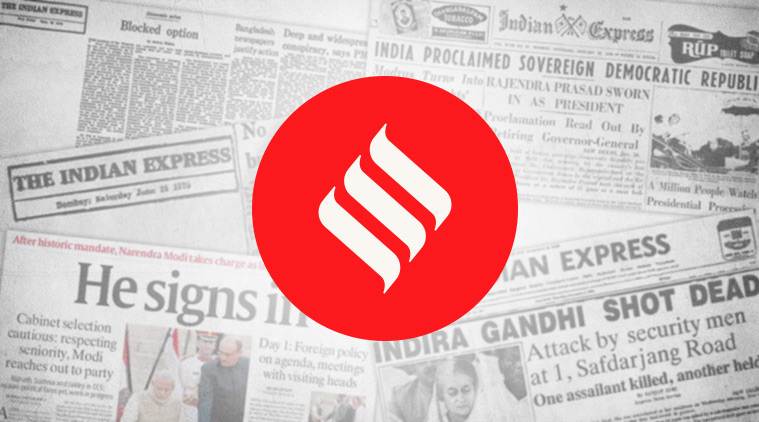
The Narendra Modi led-BJP’s winning of a second term comes with a mandate so large that it could end the political argument. It must start a new conversation. One that begins with the acknowledgement of what PM Modi and his party have achieved. First and foremost: A second unprecedented majority, the second larger than the first. Verdict 2019 deals a fell blow not just to the political common sense that India’s parliamentary election had become the sum of 29 contests, but also, that anti-incumbency had settled down as the country’s political reflex. The numbers will be parsed carefully in days to come. But it is already clear that this was a national election, fought across the country around the political persona of the man who had led the NDA government for five years, and the electorate has overwhelmingly affirmed his rule.
In the process, Modi has taken the BJP to newer places and groups. The party that was seen as a Brahmin-Bania outfit, primarily of the Hindi heartland, and most attractive to the upper classes, has now carved significant spaces for itself in the east, most spectacularly, in West Bengal, and also in the south, in Telangana and Karnataka. It has also vaulted over the faultlines of caste and class. A victory of this magnitude speaks of an appeal that has breached the caste vote banks of its political opponents and also drawn into its fold the aspirational and the poor.
Under Modi, the BJP shows an appetite for power not diminished by being in power. And an ability to constantly remake its message, add layers to the party’s appeal. In the beginning, was the call for Hindu consolidation, by a party that pledges to protect and propagate Hindu interests, through the proposed amendments to the Citizenship Bill, or even more strikingly, and troublingly, by the candidature of Sadhvi Pragya Thakur, accused in a terror case, out on bail. But that was not all.
After the terror attack in Pulwama, and India’s response to it in Balakot, the BJP, and the Modi campaign, turned “national security” into a prime talking point. Hindutva was mixed with a muscular nationalism that used the strikes in Pakistan to spell out a new security doctrine: If hit, India would retaliate, and would say so too. To this mix, was added the message that the Modi regime was burnishing India’s stature abroad. And delivering a vast array of schemes to the poor at home, in their homes.
Indeed, the Modi message was underscored by the fact that in times of an economic downturn, and rampant unemployment in a country of the young, the government found imaginative and relatively efficient ways of lending a helping hand to the poor. Be it the Ujjwala yojana, or the assistance with building toilets and Swachch Bharat, be it the opening of Jan Dhan accounts for all or the Rs 2,000 sent into them under PM-Kisan — the state reached out to those who bore the brunt of an economic slowdown made worse by, ironically enough, another government policy, demonetisation.
***
AS IT drove its multiple messages home, the Modi-BJP was helped, most of all, by its Opposition. It would be no exaggeration to say that the Congress-led Opposition created the enabling environment for the Modi landslide.
The Congress and the Mahagathbandhans sought to counter the multi-hued, leave-nothing-to-chance Modi campaign with just an anti-Modi slogan plus a bare caste arithmetic. Rahul Gandhi’s “Chowkidar chor hai” chant could not drown out his party’s silence on crucial issues or its BJP-lite responses in others.
For five years, the Congress seemed either spooked by the BJP or bewildered about the way forward, on subjects ranging from secularism and the rights of minorities to economic policy. Just before elections, the Congress did finally try to outline its positions, differentiate itself from the BJP, in its manifesto. But it was too late, and the Congress itself seemed content to throw up talking points in the capital’s drawing rooms — it did nothing to carry its document to the people.
Regional parties in the Opposition, with the exception of the DMK in Tamil Nadu and the YSR Congress in Andhra Pradesh, also confront a moment of reckoning. The RJD in Bihar, and partners in the much touted UP Gathbandhan, SP and BSP, need to ask themselves why it was so easy for the BJP to flatten regional diversities and sweep aside state specificities. It could do so because these parties have either shrunk into family fiefs, or let themselves be tarred by corruption or tainted by a distorted version of secularism that alienates the majority without meaningfully coming to the aid of the minority. Or they have narrowed their appeal to address their core support groups alone.
BUT with great power comes great responsibility, as Modi himself underlined in his victory speech. More so, when the victory comes after a campaign marked by majoritarian triumphalism and a rhetoric that often sought to divide to rule. From fielding a terror-accused who will now be the new MP from Bhopal to categorising the electorate as majority or minority, many anxieties were stoked, institutions were tested. Now, the election won, and handsomely, PM Modi and the party that he and his lieutenant Amit Shah have remade in their own mould, must acknowledge the need to reach out to those who worry about the shrinking of the Opposition. How they respond in their historic second term will matter to all those who have stakes in the quality — and future — of this great democracy.
